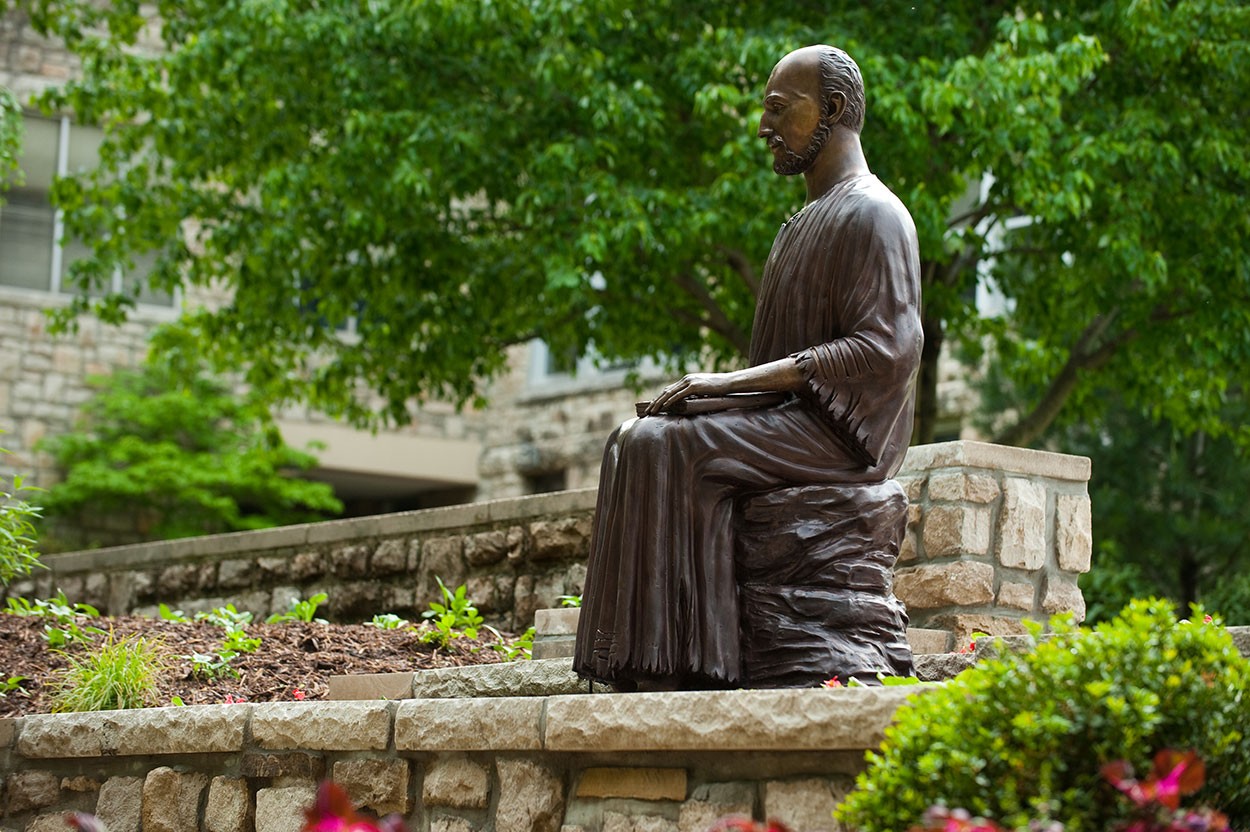
Jesuit Tradition
The spiritual heritage of Rockhurst University originates from the founder of the Society of Jesus, Saint Ignatius Loyola, a Basque knight who lived in the first half of the 16th century.
St. Ignatius began his life as a courtier and then a soldier. During a battle against the French in 1521 he was hit by a cannonball. While recuperating from his injuries, he read books about the life of Christ and the lives of the saints. Their example inspired him to give up his former life and become a follower of Christ.
Central to St. Ignatius’ own life and spirituality was a profound experience of God that transformed the way he looked at himself, others, and the world. He realized that God's spirit is constantly at work in all of creation and especially in every human being whose unique gifts and talents have the potential to mirror the goodness and grandeur of God.
This experience of God’s love propelled St. Ignatius to respond. He desired to give of himself in the service of God for the healing and well-being of all creation and for helping all people reach their greatest human potential. It was for this reason that St. Ignatius formed the Society of Jesus.
Jesuit Education
Rockhurst University, founded in Kansas City in 1910, shares this 450-year-old tradition with 27 other Jesuit colleges and universities in the United States and with hundreds of Jesuit schools, institutes, and educational works worldwide.
Jesuit education has always been noted for academic excellence and for an emphasis on the education of the whole person. Academic excellence, a value-oriented education, interdisciplinary studies, a global perspective and justice remain hallmarks of Jesuit education today.
- Based on St. Ignatius Loyola’s insight that God may be known “in all things,” his vision of the fundamental goodness of the world, and his view of human endeavor as a partnership with the creating God
- Committed to learning and the search for knowledge which demands academic excellence and to a love of the world which leads to the desire to create a better and more just existence
- Pledged to form men and women for others who seek to transform the world by being leaders in the service of others
- Dedicated to developing the habit of reflecting on values which is crucial for making sound judgments
- Supportive of religious diversity within the university community as a condition for religious dialogue and for the development of a genuine partnership in service to culture and society
The Rev. Peter-Hans Kolvenbach, S.J., the 29th Superior General of the Society of Jesus, on the 200th anniversary celebration of Jesuit education in the United States, described the Character of a graduate of a Jesuit Institution:
Our purpose in education, then, is to form men and women “for others.” The Society of Jesus has always sought to imbue students with values that transcend the goals of money, fame, and success. We want graduates who will be leaders concerned about society and the world in which they live. We want graduates who desire to eliminate hunger and conflict in the world and who are sensitive to the need for a more equitable distribution of the world’s goods. We want graduates who seek to end sexual and social discrimination and who are eager to share their faith with others.
In short, we want our graduates to be leaders in service. That has been the goal of Jesuit education since the 16th century. It remains so today.
